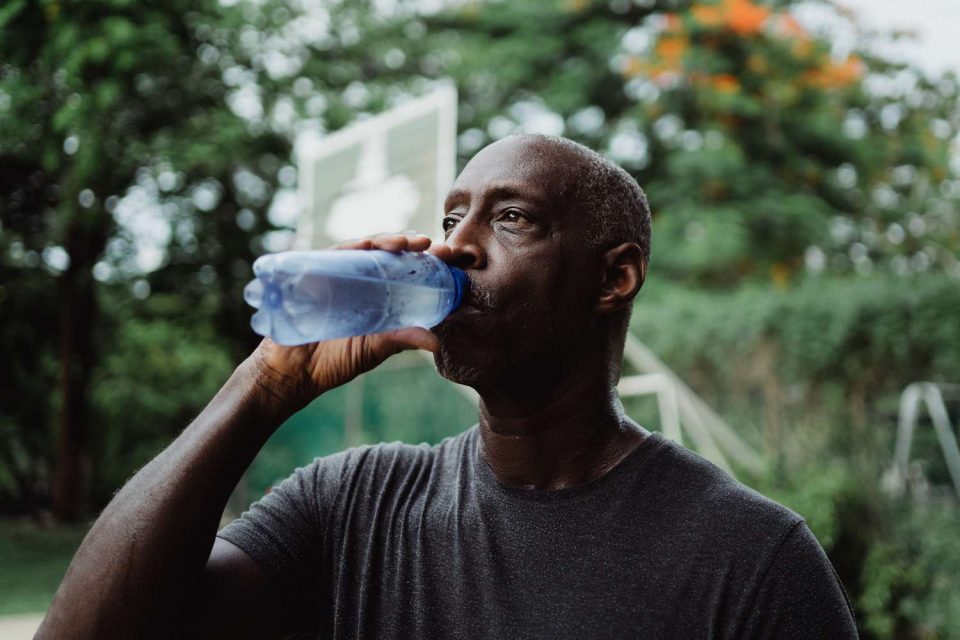Just like me, Whether you’ve had fatigue or even dry skin, you’ve probably been told to drink more water as a cure. But experts say our obsession with carrying water bottles wherever we go might be causing us to drink more water than our bodies need.
In the early 19th Century, people had to be close to death before deigning to drink water. Only those “reduced to the last stage of poverty satisfy their thirst with water”.
We’ve been bombarded with messages telling us that drinking litres of water every day is the secret to good health, more energy and great skin, and that it will make us lose weight and avoid cancer.
Fuelling this appetite for water is the “8×8 rule”: the unofficial advice recommending we drink eight 240ml glasses of water per day, totalling just under two litres, on top of any other drinks.
The book Nutrition for Good Health, co-authored by nutritionists Margaret McWilliams and Frederick Stare, recommended that the average adult consumes between six to eight glasses of water a day.
But, the authors wrote, this can include fruit and veg, caffeinated and soft drinks, even beer.
Water is, of course, important. Making up around two-thirds of our body weight, water carries nutrients and waste products around our bodies, regulates our temperature, acts as a lubricant and shock absorber in our joints and plays a role in most chemical reactions happening inside us.
We’re constantly losing water through sweat, urination and breathing. Ensuring we have enough water is a fine balance, and crucial to avoiding dehydration.
The symptoms of dehydration can become detectable when we lose between 1-2% of our body’s water and we continue to deteriorate until we top our fluids back up. In rare cases, such dehydration can be fatal.
Years of unsubstantiated claims around the 8×8 rule have led us to believe that feeling thirsty means we’re already dangerously dehydrated.
But experts largely agree that we don’t need any more fluid than the amount our bodies signal for, when it signals for it.
In a healthy body, the brain detects when the body is becoming dehydrated and initiates thirst to stimulate drinking. It also releases a hormone which signals to the kidneys to conserve water by concentrating the urine.
While water is the healthiest option since it has no calories, other drinks also hydrate us, including tea and coffee.
Although caffeine has a mild diuretic effect, research indicates that tea and coffee still contribute to hydration – and so do some alcoholic drinks.
Will drinking more water improve health – or help you lose weight?
There’s little evidence suggesting that drinking more water than our body signals for offers any benefits beyond the point of avoiding dehydration.
Still, research suggests there are some important benefits to avoiding even the early stages of mild dehydration.
A number of studies have found, for example, that drinking enough to avoid mild dehydration helps support brain function.
A 2023 study found that being properly hydrated can also slow down ageing and help to avoid chronic conditions such as heart and lung disease.
Some studies suggest fluid consumption can help manage weight. Brenda Davy, a professor of human nutrition, food and exercise at Virginia Polytechnic Institute and State University, has carried out a few studies looking at fluid consumption and weight.
In one study, she randomly assigned subjects to one of two groups. Both groups were asked to follow a healthy diet for three months, but only one was told to drink a 500ml glass of water half an hour before eating each meal. The group who drank the water lost more weight than the other group.
Both groups were also told to aim for 10,000 steps a day, and those who drank the glasses of water better adhered to this. Davy guesses this is because mild dehydration of around 1-2% is quite common, and many people may not realise when this happens – and even this mild level can affect our mood and energy levels.
Another alleged health benefit of drinking more water is improved skin complexion and better moisturised skin. But there is a lack of evidence to suggest a credible scientific mechanism behind this.
Can you drink too much water?
Those of us aiming for eight glasses of water per day aren’t doing ourselves any harm. But the belief we need to drink more water than our bodies signal for can sometimes become dangerous.
Too much fluid consumption can become serious when it causes a dilution of sodium in blood. This creates a swelling of the brain and lungs, as fluid shifts to try to balance out blood sodium levels.


